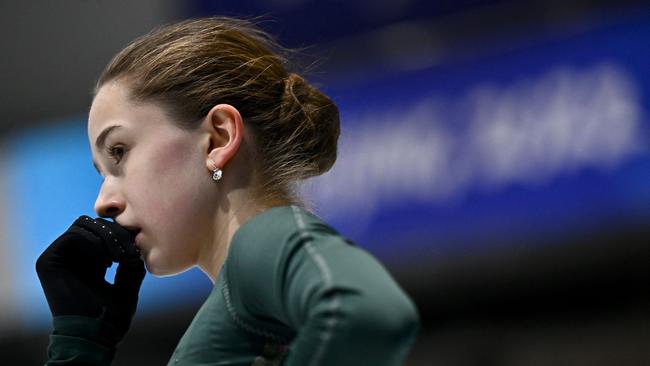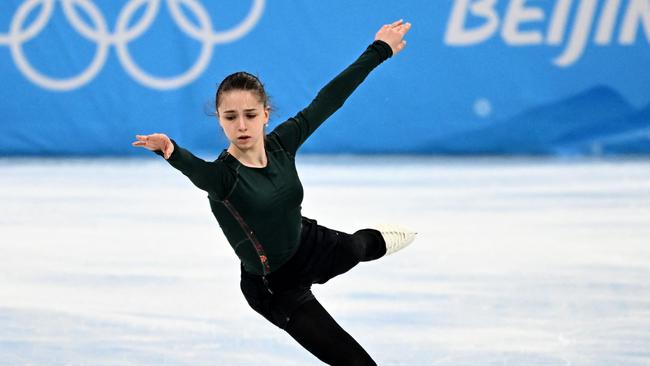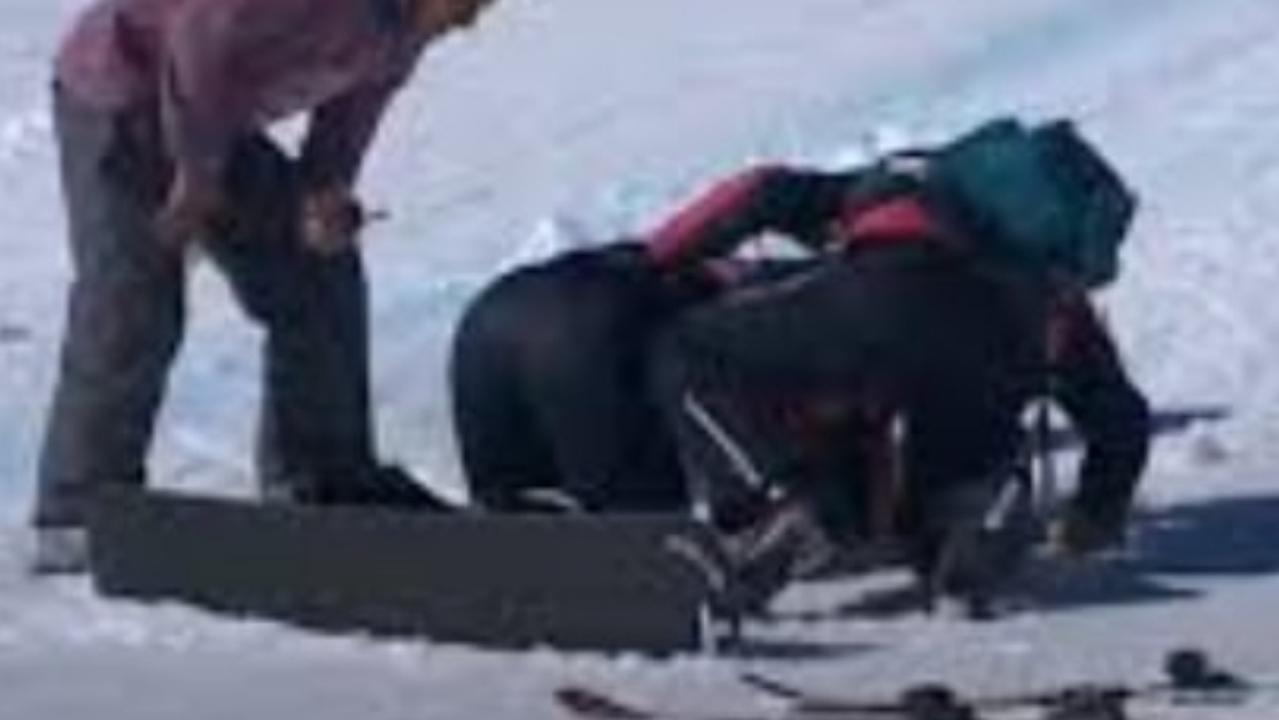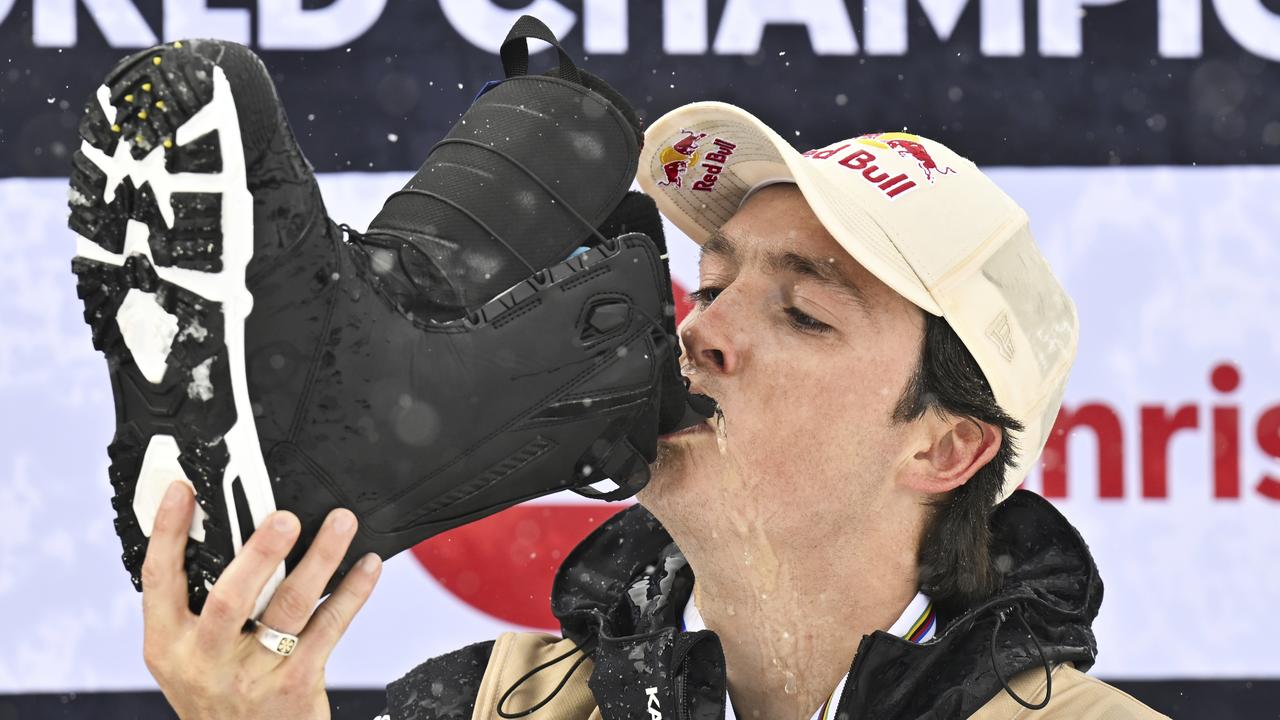Beijing Winter Olympics 2022: All the latest on Russian drug scandal involving figure skater Kamila Valieva
Kamila Valieva is still waiting to learn her fate but shocking accusations are being made, and foreign journalists threatened, as tensions between Russia and the US rise.
Winter Olympics
Don't miss out on the headlines from Winter Olympics. Followed categories will be added to My News.
Russian figure skater Kamila Valieva will learn if she is to be thrown out of the Beijing Olympics for a Christmas Day positive drug test in the coming hours, as a new Cold War on Ice escalates between Russia and the United States.
Russia is accused of a revisiting a doping low that was the playbook of the East German regime: drugging young athletes.
In this case Valieva, 15, returned a positive test to a heart medication, trimetazidine, the same drug that the disgraced Chinese swimmer Sun Yang once served a drugs suspension. It has been banned by WADA for the past eight years because of its ability to boost endurance.
Skating’s two time Olympic champion Katarina Witt was horrified that a young skater has been abused by those around her.
“What they knowingly did to her, if true, cannot be surpassed in inhumanity and makes my athlete’s heart cry infinitely,” she said.

Valieva is considered the next great ladies skater, and she performed the first quad jump in Olympic competition last week.
Russia has already mobilised the full force of social media trolls and journalists on the ground in Beijing to harass and threaten several foreign journalists who have asked questions about Valieva and doping.
In one fell swoop, the case has reopened wounds of the 2014 Sochi Winter Olympics where Russian officials organised drug cocktails called The Duchess: three different steroids mixed with Chivas whisky for the men and Vermouth for the ladies; and then swap dirty samples for clean.
But the International Olympic Committee, under president Thomas Bach has welcomed Russia back into the fold, with a few window-dressing caveats, allowing the Russian drug testing authority, RUSADA, to conduct pre-Games testing and then impose penalties.
In Valieva’s case, she appealed an initial suspension – the length of which has not been released – and RUSADA acquiesced, allowing her to arrive in Beijing and compete in the Olympic Games.

The head of Global Athlete Rob Koehler, a US based athletes rights organisation: “By refusing to impose a full four-year ban on Russia for implementing the most egregious state-sponsored doping scheme in a generation, international administrators from the World Anti Doping Agency, the IOC and the Court of Arbitration for Sport tacitly approved a culture of doping in Russia. Russian athletes, including Valieva, are paying the price for the failures of the global sport bureaucracy.”
Koehler said every whistleblower, former doper, and current athlete says the same story. “Russian athletes have no choice but to conform to the system. They either fall in line or they’re out of sport. Falling in line sometimes means doping.”
Insiders at the IOC say that they have acted as soon as they were aware of Valieva’s drug case on Monday and fast tracked a case in the CAS, as well as suspending the medal presentation for the team’s event, where Russia beat the United States for the gold medal.
A court result is imminent as Valieva’s next competition is on Tuesday.
The US Anti Doping Agency said it would also bring criminal proceedings against Russian officials under America’s Rodchenkov Act where they could be face $1 million fines and jail for up to 10 years for involvement in doping schemes.





